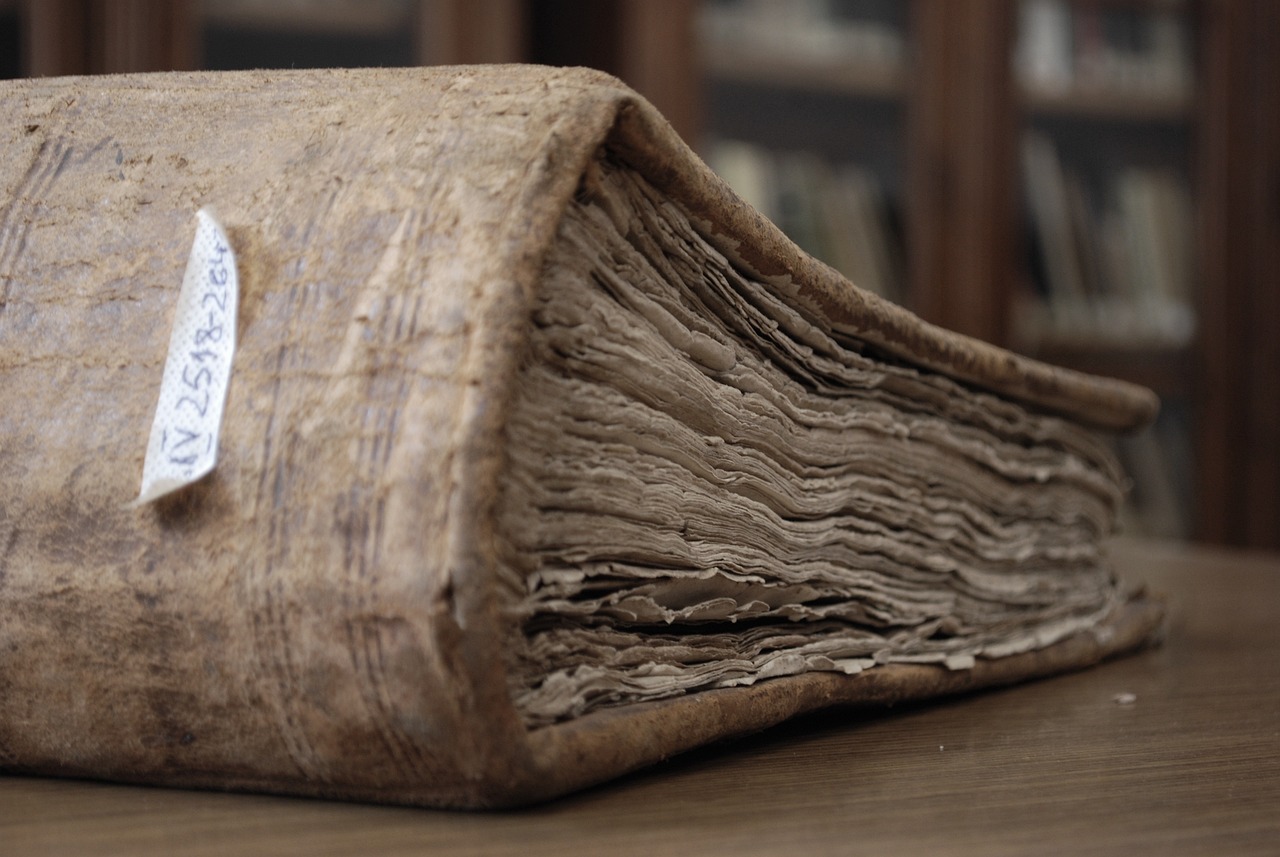Hey there gas stove owners! If you’re experiencing some issues with your gas stove and are in need of some repairs, you’ve come to the right place. In this article, we’ll be diving into the world of „naprawa piecyków gazowych” (gas stove repairs) and exploring how you can get your trusty appliance back in top shape. So sit back, relax, and let’s get your gas stove cooking like new again!
Jak działa piecyk gazowy
To naprawa piecyków gazowych może wydawać się skomplikowanym zadaniem, ale z odpowiednią wiedzą i narzędziami możesz poradzić sobie z większością typowych problemów. Oto kilka kroków, które pomogą Ci zrozumieć, i jak go naprawić.
- Sprawdź, czy piecyk jest podłączony do źródła gazu. Czasami wystarczy niewłaściwe podłączenie, aby sprawiło, że piecyk przestanie działać poprawnie.
- Sprawdź stan palnika. Często zapchania lub zabrudzenia palnika mogą powodować problemy z płomieniem. W takim przypadku, wystarczy go wyczyścić, aby przywrócić pełną wydajność.
- Upewnij się, że wszystkie zawory są otwarte. W przypadku, gdy jakiś zawór jest zamknięty, piecyk nie będzie działać poprawnie.
- Jeśli po wykonaniu powyższych kroków piecyk nadal nie działa poprawnie, może to oznaczać problem z termostatem. W takiej sytuacji konieczna może być wymiana lub naprawa tego elementu.
- Nie zapominaj regularnie serwisować piecyka gazowego. Odpowiednia konserwacja może zapobiec wielu problemom i przedłużyć jego żywotność.
By zrozumieć, , warto zapoznać się z jego schematem blokowym. Poniżej znajdziesz prosty schemat, który pomoże Ci zidentyfikować główne komponenty piecyka gazowego:
| Komponent | Funkcja |
|—————–|——————————————-|
| Palnik | Odpowiada za spalanie gazu |
| Termostat | Reguluje temperaturę wewnątrz piecyka |
| Płaszcz grzewczy | Zapewnia rozprowadzenie ciepła |
| Zawór gazowy | Odpowiada za dostarczanie gazu do palnika |
Pamiętaj, że naprawa piecyka gazowego może być niebezpieczna, dlatego jeśli nie czujesz się pewnie, lepiej skonsultować się z profesjonalistą. W przypadku poważnych usterek zawsze warto skorzystać z usług serwisu, aby uniknąć ewentualnych zagrożeń. Wiedza na temat działania piecyka gazowego może jednak przydać się w codziennym użytkowaniu i zapobiec drobnym problemom.
Najczęstsze problemy z piecykami gazowymi
When it comes to gas heaters, there are a few common problems that can arise. One of the most frequent issues is a pilot light that won’t stay lit. This can be caused by a faulty thermocouple, which is designed to shut off the gas if the pilot light goes out. Replacing the thermocouple is a relatively simple fix that can be done by a professional technician.
Another common problem is a burner that won’t ignite. This could be due to a clogged burner or a faulty igniter. Cleaning the burner or replacing the igniter can usually solve this issue. It’s important to remember to turn off the gas supply before attempting any repairs.
Gas leaks are a serious problem that can occur with gas heaters. If you smell gas or suspect a leak, it’s crucial to turn off the gas supply immediately and evacuate the area. Contact a professional technician to locate and repair the leak to ensure the safety of your home.
Improper ventilation is another issue that can arise with gas heaters. Blocked vents or flues can prevent the proper flow of exhaust gases, leading to a buildup of dangerous carbon monoxide. Regularly inspecting and cleaning ventilation systems can help prevent this problem.
Common problems with gas heaters:
- Pilot light won’t stay lit
- Burner won’t ignite
- Gas leaks
- Improper ventilation
| Issue | Solution |
|---|---|
| Pilot light won’t stay lit | Replace faulty thermocouple |
| Burner won’t ignite | Clean burner or replace igniter |
| Gas leaks | Turn off gas supply, evacuate, and contact professional |
| Improper ventilation | Regularly inspect and clean vents |
Wskazówki dotyczące bezpiecznego użytkowania piecyka gazowego
– Always make sure to inspect your gas heater regularly for any signs of wear and tear. Look for cracks, leaks, or rust that could indicate potential safety hazards.
– Keep the area around your gas heater clear of any flammable materials or obstructions. This includes keeping curtains, furniture, and other items a safe distance away from the heater.
– When lighting your gas heater, make sure to follow the manufacturer’s instructions carefully. Never use matches or lighters that are damaged or defective.
– If you smell gas or suspect a leak, immediately turn off the gas supply to the heater and ventilate the area by opening windows and doors. Do not attempt to light the heater until the issue has been resolved by a professional.
– It’s important to schedule regular maintenance and inspections for your gas heater to ensure it is operating safely and efficiently. A certified technician can identify and address any potential issues before they become a problem.
– Educate yourself on the proper use and maintenance of your gas heater. Understanding how to operate the heater safely can help prevent accidents and ensure the longevity of the appliance.
– In case of any doubts or concerns about the safety of your gas heater, don’t hesitate to contact a professional for assistance. Your safety and well-being should always come first when dealing with gas appliances.
| Gas Heater Safety Tips: | Inspect heater regularly |
|---|---|
| Keep area clear of flammable materials | |
| Follow manufacturer’s instructions | |
| Turn off gas supply if you suspect a leak | |
| Schedule regular maintenance | |
| Educate yourself on proper use | |
| Seek professional help if needed |
Jak dbać o piecyk gazowy, aby służył dłużej
To ensure that your gas heater lasts longer, it is crucial to take proper care of it. Regular maintenance and proper usage are key to keeping your appliance in top condition. Here are some tips on how to care for your gas heater:
-
Cleaning: Regularly clean the exterior of the gas heater with a damp cloth to remove any dust or dirt that may have accumulated. This will help prevent the build-up of debris that can affect the performance of the appliance.
-
Ventilation: Make sure that the area around the gas heater is well ventilated to allow for proper air circulation. This will help prevent the build-up of carbon monoxide and ensure the safety of your home.
-
Inspection: Periodically inspect the gas heater for any signs of wear and tear, such as rust or corrosion. If you notice any issues, it is important to address them promptly to prevent further damage.
-
Professional Maintenance: It is recommended to have your gas heater serviced by a professional at least once a year. This will help ensure that all components are in good working order and that the appliance is functioning efficiently.
-
Proper Usage: Follow the manufacturer’s instructions for proper usage of the gas heater. Avoid using the appliance for any purpose other than heating, and do not attempt to make any modifications to the unit.
By following these tips, you can help prolong the life of your gas heater and ensure that it continues to provide you with reliable warmth for years to come.
Kiedy należy przeprowadzić konserwację piecyka gazowego
To ensure your gas heater is running efficiently and safely, it is important to regularly maintain and service it. This will help prevent any potential issues and extend the lifespan of your appliance. Here are some key points to consider when scheduling a maintenance check for your gas heater:
- Annual Inspection: It is recommended to have your gas heater inspected by a professional at least once a year. This will help identify any potential problems early on.
- Seasonal Timing: The best time to schedule a maintenance check is before the winter season starts. This will ensure your heater is in top working condition when you need it the most.
- Visible Signs: Keep an eye out for any visible signs that your gas heater may need servicing, such as strange odors, yellow flames instead of blue, or soot buildup.
Regular maintenance of your gas heater is crucial in ensuring its efficiency and safety. By staying on top of your heater’s maintenance schedule, you can avoid costly repairs and potential safety hazards. Don’t wait until it’s too late, schedule a maintenance check for your gas heater today!
| Benefits of Gas Heater Maintenance |
|---|
| Improved efficiency |
| Extended lifespan |
| Prevention of safety hazards |
Wymiana części w piecyku gazowym – co warto wiedzieć
When it comes to repairing gas stoves, there are a few things you should keep in mind to ensure your safety and the longevity of your appliance. One important aspect to consider is the exchange of parts in your gas stove. It’s crucial to understand the basics of this process so you can make informed decisions and avoid any potential hazards.
If you’re experiencing issues with your gas stove, such as inconsistent heating or unusual noises, it may be time to replace some parts. One common part that may need replacing is the thermocouple. This component is responsible for regulating the gas flow in your stove and ensuring that it operates safely. If you notice that your stove is not lighting properly or is producing a weak flame, this could be a sign that the thermocouple needs to be replaced.
Another part to keep an eye on is the burner assembly. Over time, burners can become clogged with food debris and other contaminants, leading to inefficient heating and potential safety risks. Replacing the burner assembly can help improve the performance of your gas stove and prevent any potential issues.
Additionally, it’s important to regularly check and clean the gas valves in your stove. Dirty or malfunctioning gas valves can lead to gas leaks, which can be extremely dangerous. By replacing these valves when necessary, you can ensure that your gas stove functions properly and safely.
In conclusion, understanding the basics of replacing parts in your gas stove is essential for maintaining its safety and efficiency. By keeping an eye on components like the thermocouple, burner assembly, and gas valves, you can address any issues promptly and prevent potential hazards. Remember to always prioritize safety when working with gas appliances and consider seeking professional help if you’re unsure about any repairs.
Kiedy warto zlecić profesjonalną naprawę piecyka gazowego
Wiele osób często zastanawia się, kiedy najlepiej jest zlecić naprawę swojego piecyka gazowego. Oto kilka sytuacji, w których warto skorzystać z usług profesjonalisty:
- Gdy piecyk przestaje działać poprawnie i nie można ustalić przyczyny usterki.
- Jeśli wyczuwalny jest zapach gazu, co może świadczyć o potencjalnym zagrożeniu dla zdrowia i życia mieszkańców.
- W przypadku, gdy piecyk wydaje niepokojące dźwięki lub generuje dziwne odgłosy podczas pracy.
- Jeżeli piecyk nie nagrzewa mieszkania tak jak powinien, co może prowadzić do strat ciepła i zwiększonych rachunków za energię.
Profesjonalna naprawa piecyka gazowego zapewni nie tylko bezpieczeństwo, ale także efektywne i sprawne działanie urządzenia. Dzięki regularnym przeglądom i konserwacjom można uniknąć poważnych problemów w przyszłości.
Warto również pamiętać, że samodzielne naprawy piecyka gazowego mogą być niebezpieczne i prowadzić do poważnych wypadków. Dlatego lepiej zaufać doświadczonemu fachowcowi, który szybko i skutecznie naprawi urządzenie.
Skąd czerpać informacje na temat naprawy piecyków gazowych
Jeśli zastanawiasz się, , nie musisz dłużej szukać – jestem tu, aby Ci pomóc! Istnieje kilka różnych źródeł, z których można korzystać, aby dowiedzieć się wszystkiego, co musisz wiedzieć o tego rodzaju naprawach. Sprawdź poniższe wskazówki, aby uzyskać niezbędne informacje:
- Katalog instrukcji użytkownika: pierwszym miejscem, gdzie powinieneś zacząć szukać informacji, jest instrukcja użytkownika do Twojego piecyka gazowego. Znajdziesz w niej szereg wskazówek dotyczących obsługi i ewentualnych usterek, jak również instrukcje naprawy
- Internetowe fora i blogi: w sieci znajdziesz mnóstwo osób, które dzielą się swoimi doświadczeniami z naprawą piecyków gazowych. Przeszukaj fora dyskusyjne i blogi branżowe, aby dowiedzieć się, jakie problemy mogą wystąpić i jak je rozwiązać
- Youtube poradniki: popularne platforma wideo to doskonałe źródło praktycznych porad. Wyszukaj filmiki instruktażowe dotyczące naprawy piecyków gazowych, aby krok po kroku dowiedzieć się, jak samodzielnie naprawić usterkę
Podsumowując, informacje na temat naprawy piecyków gazowych można znaleźć w różnych miejscach. Korzystaj z instrukcji, poradników online i doświadczeń innych użytkowników, aby skutecznie naprawić swoje urządzenie. Pamiętaj jednak o bezpieczeństwie i w razie wątpliwości zawsze skonsultuj się z profesjonalistą.
Sposoby na zwiększenie efektywności działania piecyka gazowego
Do you want to make sure your gas stove is running efficiently? Here are some tips and tricks to help you increase the effectiveness of your gas appliance:
-
Regular maintenance: Make sure to clean the burners and ports regularly to remove any debris or clogs that may be affecting the efficiency of the stove.
-
Check for leaks: It’s important to regularly check for gas leaks in your stove to ensure that it’s functioning properly and safely.
-
Adjust the flame: If you notice that the flames on your stove are yellow instead of blue, it could be a sign that the burners need adjustment. Blue flames indicate that the gas is burning efficiently.
-
Proper ventilation: Make sure that there is proper ventilation in the room where your gas stove is located to prevent any buildup of carbon monoxide.
-
Use the right cookware: Using the right size and type of cookware can help your stove operate more efficiently and evenly distribute heat.
By following these simple tips, you can ensure that your gas stove is running at its best and keep your kitchen running smoothly. Remember, a well-maintained gas stove is not only more efficient but also safer for you and your family.
Dlaczego regularne czyszczenie piecyka gazowego jest kluczowe
Regularne czyszczenie piecyka gazowego jest kluczowe dla zachowania bezpieczeństwa i efektywności działania urządzenia. Zbierający się na przestrzeni czasu nagar oraz brud mogą prowadzić do powstania problemów z działaniem piecyka, a nawet stanowić zagrożenie pożarowe. Dlatego warto regularnie przeprowadzać konserwację i czyszczenie urządzenia, aby uniknąć niebezpiecznych sytuacji.
Podczas czyszczenia piecyka gazowego warto zwrócić uwagę na kilka kluczowych elementów:
- Sprawdzenie i oczyszczenie palnika – zapobiegnie to zanieczyszczeniu, co może prowadzić do problemów z płonieniem gazu.
- Oczyszczenie dyfuzora – gwarantuje prawidłowe mieszanie się gazu z powietrzem, co wpływa na efektywność spalania.
- Wymiana filtra gazowego – zapewnia czysty przepływ gazu, co wpływa na stabilność działania piecyka.
Regularne czyszczenie piecyka gazowego nie tylko pozytywnie wpłynie na jego sprawność i trwałość, ale także zapewni bezpieczeństwo jego użytkowania. Dlatego zadbaj o regularną konserwację swojego urządzenia, aby cieszyć się komfortem i bezpieczeństwem w swoim domu.
Oznaki, że piecyk gazowy wymaga natychmiastowej naprawy
If you notice any of the following signs in your gas heater, it’s time to get it fixed ASAP:
- Strange or unusual smells coming from the appliance
- Weird noises like banging or rattling
- Difficulty in lighting the pilot light
- An orange or yellow pilot light (it should be blue)
- Soot or rust buildup on the appliance
- Inconsistent heating or frequent shut-offs
- Increased gas consumption without a change in usage
Kontrola wycieków gazu – jak to zrobić bezpiecznie
To ensure the safety of your home and loved ones, it’s crucial to regularly check for gas leaks in your gas heaters. Here are some simple steps to help you perform a gas leak inspection safely:
- Odor: Be aware of any strange odors in the vicinity of your gas heater. Gas leaks often emit a foul, sulfur-like smell, similar to rotten eggs.
- Sight: Look for any visible signs of damage or corrosion on the gas lines or connections. Leaks can sometimes be identified by hissing sounds or bubbling at the connection points.
- Gas Detection Devices: Invest in a gas detection device to quickly and accurately identify any leaks in your home. These devices are an essential tool for ensuring your safety.
In the event that you suspect a gas leak in your gas heater, it’s essential to take immediate action to address the issue. Here are some steps you can take to safely repair gas heaters:
- Turn off Gas Supply: Shut off the gas supply to your heater immediately to prevent further leakage and potential hazards.
- Ventilate the Area: Open windows and doors to allow fresh air to circulate and dissipate any lingering gas fumes.
- Contact a Professional: It’s highly recommended to contact a licensed gas technician to inspect and repair your gas heater. Attempting to fix a gas leak yourself can be dangerous and may worsen the situation.
Remember, the safety of your home and loved ones should always be a top priority. Regular maintenance and inspections of your gas heaters can help prevent potential gas leaks and ensure a safe living environment. If you suspect a gas leak, don’t hesitate to take immediate action and seek professional help. Stay safe!
Czy można samodzielnie naprawić piecyk gazowy?
Oto kilka porad, które mogą Ci pomóc w naprawie oraz utrzymaniu sprawności Twojego urządzenia.
Sprawdź przyczynę problemu
Zanim podejmiesz się naprawy, upewnij się, że znasz przyczynę usterki. Czasami wystarczy drobna regulacja, a niekoniecznie konieczna jest wymiana części.
Poszukaj instrukcji od producenta
Jeśli nie jesteś pewien, jak prawidłowo naprawić piecyk gazowy, warto zajrzeć do instrukcji od producenta. Znajdziesz w niej szczegółowe wskazówki dotyczące diagnostyki i naprawy urządzenia.
Zacznij od prostych działań
Czasami wystarczy przeczyścić palniki lub wymienić elektrody zapłonowe, aby przywrócić działanie piecyka gazowego. Niektóre problemy można rozwiązać szybko i sprawnie bez konieczności dzwonienia po fachowca.
Weź pod uwagę bezpieczeństwo
Pamiętaj, że naprawa piecyka gazowego wymaga ostrożności. Upewnij się, że przed przystąpieniem do działań naprawczych zgasłeś urządzenie i odłączyłeś je od zasilania gazowego.
Zleć naprawę specjaliście
Jeśli nie czujesz się pewnie i nie masz doświadczenia w naprawie piecyków gazowych, lepiej zleć tę czynność specjaliście. Fachowiec szybko i skutecznie rozwiąże problem, a Ty będziesz miał pewność, że urządzenie działa prawidłowo.
Znaczenie regularnych przeglądów technicznych piecyka gazowego
Regularne przeglądy techniczne piecyka gazowego są kluczowe dla zapewnienia bezpiecznego i efektywnego działania urządzenia. Dzięki regularnym inspekcjom można wykryć potencjalne usterki i problemy zanim staną się poważnym zagrożeniem dla mieszkańców domu.
Warto pamiętać, że piecyk gazowy to urządzenie, które wymaga szczególnej uwagi i dbałości. Dlatego regularne sprawdzanie jego stanu technicznego powinno być priorytetem dla każdego użytkownika.
Podczas przeglądu technicznego specjalista sprawdzi m.in. stan spalania, szczelność instalacji gazowej oraz ogólny stan techniczny piecyka. Dzięki temu można uniknąć poważnych problemów związanych z nieszczelnościami, niedrożnymi przewodami czy uszkodzeniami spalarni.
Pamiętaj, że niewłaściwe użytkowanie piecyka gazowego oraz brak regularnych przeglądów technicznych może prowadzić do wypadków i poważnych uszkodzeń. Dlatego nie bagatelizuj konieczności dbania o bezpieczeństwo Twojego domu.
Zadbaj o regularne przeglądy techniczne swojego piecyka gazowego, aby cieszyć się spokojem i komfortem użytkowania urządzenia. Pamiętaj, że bezpieczeństwo nie ma ceny, dlatego lepiej zainwestować w regularne inspekcje niż ponosić konsekwencje zaniedbań.
Najlepsze praktyki dotyczące konserwacji piecyka gazowego
When it comes to maintaining your gas heater, there are some key best practices that you should follow to ensure it runs efficiently and safely. By taking proper care of your gas heater, you can extend its lifespan and save yourself from costly repairs down the line.
One important tip is to regularly clean and inspect your gas heater to remove any dust or debris that may have accumulated. This will not only improve its performance but also prevent any potential safety hazards.
Another good practice is to have your gas heater serviced annually by a qualified technician. They will be able to check for any potential issues and make any necessary repairs to keep your heater running smoothly.
It’s also important to ensure that your gas heater is properly ventilated to prevent the buildup of harmful gases such as carbon monoxide. Make sure that all vents are clear and free from obstructions.
Additionally, be mindful of the age of your gas heater. If it is approaching the end of its lifespan, it may be time to consider replacing it with a newer, more efficient model.
By following these best practices for maintaining your gas heater, you can enjoy a warm and cozy home all winter long without any worries.
Na zakończenie, mam nadzieję, że ten artykuł pomógł Ci zrozumieć, dlaczego warto zainwestować w naprawę piecyków gazowych. Zadbaj o bezpieczeństwo swojego domu i swojej rodziny, przywracając sprawność i efektywność urządzenia. Pamiętaj, że regularne konserwacje mogą też wydłużyć życie Twojego piecyka gazowego. Dzięki temu będziesz cieszyć się ciepłem i komfortem przez wiele lat. Jeśli masz jakiekolwiek pytania lub potrzebujesz dodatkowych informacji, nie wahaj się skontaktować z profesjonalistą. Dziękujemy za przeczytanie naszego artykułu i życzę udanej naprawy piecyka gazowego!


















